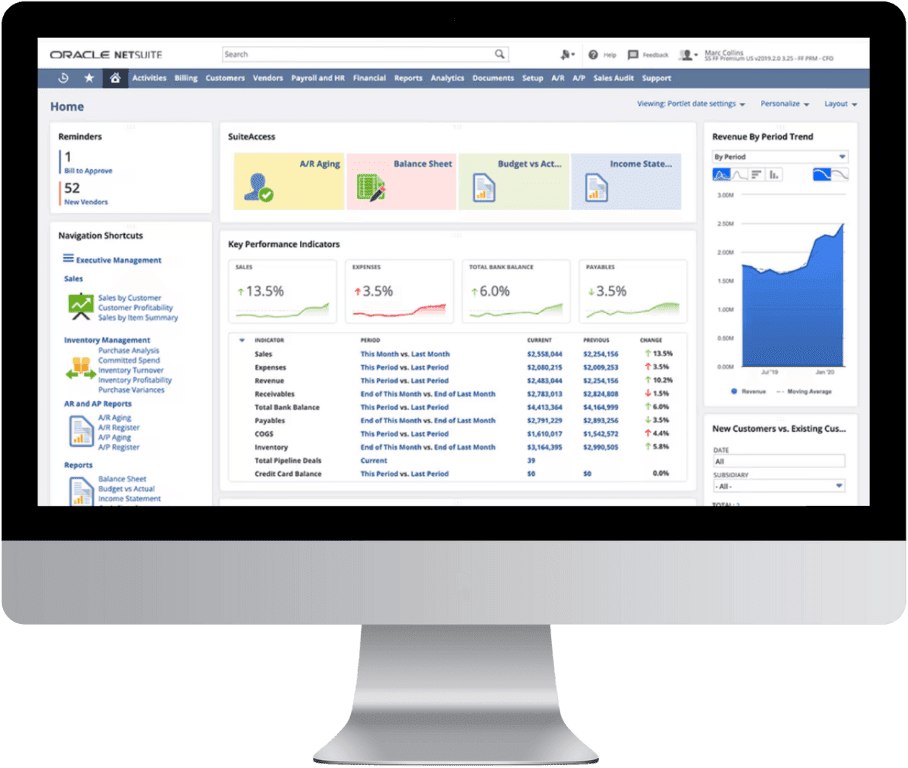NetSuite was founded in 1998 and was one of the first vendors to develop web-based business applications. Oracle acquired NetSuite in 2016, integrating ERP, database, and cloud technologies. Oracle NetSuite ERP now combines Oracle’s infrastructure strength with NetSuite’s modular business suite, offering enterprise-grade performance, security, and global scalability.
Since its inception, NetSuite has developed into a comprehensive business management suite and has grown to become the #1 cloud-based enterprise resource planning (ERP) solution, supported by an ecosystem of partners, users, and third-party providers who extend, customize, and integrate NetSuite solutions.
That's where Anchor Group Comes in.
 Learn More
Learn More











